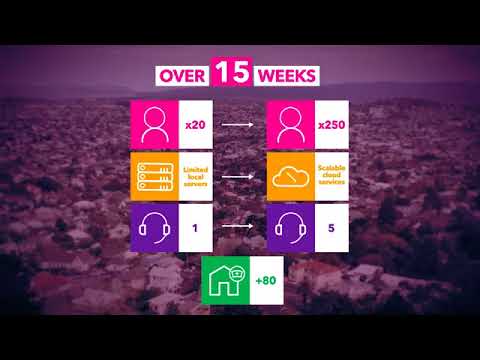How to Call in Sick Due to Mental Health?
Contents
It’s important to know your rights when it comes to mental health in the workplace. Here’s a guide on how to call in sick due to mental health
Checkout this video:
Introduction
It can be difficult to know how to call in sick due to mental health You may feel like you are not really sick, or that you should just be able to tough it out. But mental illness is a real and serious condition that can impact your ability to work. If you are feeling too ill to work, it is important to reach out to your employer and let them know.
There are a few things you can do to make the process of calling in sick due to mental health easier. First, it is important to have a conversation with your employer about your mental health condition. This will help them understand why you may need to take time off from work. You should also make sure that you have a written plan from your doctor detailing your condition and treatment plan. This can be helpful in communicating with your employer about why you need time off.
When you are ready to call in sick, be sure to be honest with your employer about why you are taking time off. It is also important to be clear about how long you expect to be away from work. If possible, offer to stay in touch with your employer during your time off so that they can check in on your progress.
The Stigma of Mental Health in the Workplace
The Stigma of Mental Health in the Workplace
It is estimated that one in five American adults will experience a mental health condition in any given year. Despite this, mental health continues to be stigmatized in the workplace. A study by the National Alliance on Mental Illness found that 60% of adults with mental illness did not receive treatment due to fear of discrimination.
When it comes to taking time off for mental health, the stigma is even greater. A study by the American Psychiatric Association found that nearly half of employees who have taken time off for mental health say they have experienced some form of discrimination as a result.
There are a number of reasons why employees may not feel comfortable disclosing a mental health condition to their employer. They may fear that it will jeopardize their job, or they may believe that their employer will not be understanding. Whatever the reason, it is important to remember that you have rights under the Americans with Disabilities Act (ADA) and other laws.
If you are considering taking time off for mental health, here are some things to keep in mind:
You have the right to request a reasonable accommodation for your condition.
Your employer cannot require you to disclose your diagnosis.
Your employer cannot ask you about your treatment history or medications.
You cannot be retaliated against for requesting an accommodation or taking leave.
If you need help navigating your rights, consider contacting an attorney specializing in employment law.
How to Call in Sick Due to Mental Health
It’s important to remember that your employer cannot make decisions about your health without your consent. If you’re considering calling in sick due to mental health, here are a few tips.
Talk to your boss or HR
When you’re feeling too overwhelmed, stressed, or down to face another day at work, it may be time to take a mental health day This means using a sick day for your mental rather than physical health.
If you’re wondering how to call in sick due to mental health, the most important thing is to be honest with your boss or HR. You don’t need to go into detail about your diagnosis or treatment, but you should explain that you’re not feeling well and need a day off.
It can be helpful to have a game plan for how you’ll use your Mental Health Day This could include resting at home, going for a walk or run outside, reading a favorite book, or spending time with loved ones. Whatever will help you relax and recharge.
If you’re struggling to manage your mental health on your own, please reach out for help. There are many resources available, including therapy, medication, and support groups.
Have a plan
When you’re feeling too overwhelmed, anxious, or depressed to go into work, it’s important to have a plan for how you will handle the situation. Calling in sick due to mental health can be difficult, but there are steps you can take to make it easier.
First, if possible, try to schedule your mental health days in advance. This will give your employer time to plan for your absence and make arrangements for coverage. If you need to call in sick at the last minute, be honest about why you’re taking the day off. Saying that you’re “not feeling well” or have a “family emergency” is not helpful and may only serve to further stresses you out. Instead, try something like “I’m having a mental health day” or “I need a day to myself.”
Second, have a solid plan for how you will spend your day off. This may include resting, spending time outside, reading or watching enjoyable television or movies, talking with supportive friends or family members, meditating, or engaging in any other activities that help you relax and de-stress. Making a plan will help you feel less guilty about taking a mental health day and make it more likely that you will actually use the time off in a productive way.
Lastly, remember that it’s okay to take care of yourself. You deserve to prioritize your mental health and wellbeing. If taking a mental health day helps you do that, then it is absolutely worth it.
Be honest
When you’re feeling too overwhelmed, stressed, depressed, or anxious to go into work, it’s important to be honest with your employer about why you need to take a mental health day. According to the National Alliance on Mental Illness, 1 in 5 adults in the U.S. experiences mental illness in a given year, so your boss should be understanding.
When you call in sick, say that you’re not feeling well and explain that you need a day off to rest and recover. If you have a history of mental health issues, you can tell your employer that you’re experiencing a flare-up and need to take some time off. If you feel comfortable, you can also explain what your symptoms are so they have a better understanding of what you’re going through.
If you’re worried about how your boss will react, it might help to have a conversation with them beforehand about your mental health and how it could affect your work. This way, they’ll be more understanding if you do need to take a mental health day.
Conclusion
You should always consult with your supervisor about the best way to handle your mental health leave, but in general, it is best to be honest about your symptoms and explain how they are impacting your ability to do your job. If you have a mental health diagnosis, you may want to share this information with your employer, but it is not required. If you need time off for therapy or other treatment, let your employer know what arrangements you have made so they can plan accordingly. Finally, remember that it is okay to take care of yourself, and that asking for help is a strength, not a weakness.






